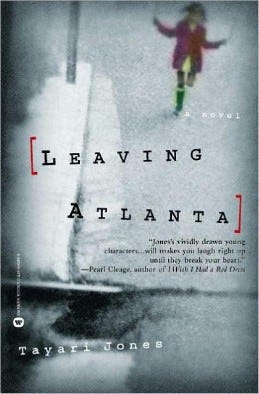‘Missing black girl’ stories underreported: Are reporters to blame?
The newsroom incident that made me want to quit working in media

When people blame “the media” for everything wrong with the world, my initial impulse is to defend. Why? I worked in traditional newsrooms for several years before joining the online journalism world as both a full-time writer and editor. Blaming “the media” can be too broad of a stroke; there are members of the media who care about what the same complaining readers do. Don’t blame all of us for some of us. But there have been some moments in a newsroom that have made it hard to defend the industry, one of which describes the phrase that has started trending again: missing white woman syndrome, coined by Gwen Ifill.
Recommended Read: “10 hard lessons I learned as a black journalist ~ My love-hate relationship with the news industry”
Journalist Joy Reid, coverage of 22-year-old missing white woman Gabrielle “Gabby” Petito and lack of coverage for 24-year-old missing black man Daniel Robinson has brought the phrase back to the frontline and to the front of my mind — again. One particular newsroom incident still sticks out in my mind during one of my night shifts in 2012. It’s one of my least favorite memories in a newsroom, and why I grow so quiet when listening to family and friends talk about racist reporters.
The fact that this reporter felt comfortable enough to send a message like this, unapologetically dismissing the story of this black girl was wild enough.
There was a missing 10-year-old black girl named Jade Morris, who’d last been seen near a Las Vegas casino. One of the digital news editors who I worked with asked our news streaming service for coverage of this story — before the child’s body was found near a construction area by someone walking a dog and before the woman who killed her was given life without parole. I’d already gotten into an email debate with this streaming service’s reporting team regarding entertainment news coverage and a problematic story written about black women preferring “dirty hair.” Somehow though, I was still surprised when the crime news beat reporter said that the story of this missing black girl was below the bar for them.
ADVERTISEMENT ~ Amazon
As an Amazon affiliate, I earn a percentage from purchases with my referral links. I know some consumers are choosing to boycott Amazon for its DEI removal. However, after thinking about this thoroughly, I want to continue promoting cool products from small businesses, women-owned businesses and (specifically) Black-owned businesses who still feature their items on Amazon. As of the first date of Black History Month 2025, each new post will ALWAYS include a MINIMUM of one product sold by a Black-owned business. (I have visited the seller’s official site to verify that Amazon Black-owned logo.) I am (slowly) doing this with older, popular posts too. If you still choose to boycott, I 100% respect that decision.

I read the message and forwarded that response to my boss, asking why was this kind of story so beneath the reporter. Even he, a white guy, couldn’t provide an explanation. Our team was in charge of updating our national and world news websites, but we did not write national and world news stories. Could we have? Yes. Although I’d been a reporter at a previous publication, I wasn’t an in-house writer for this newspaper.
That was the first time I reevaluated the idea of working for a mainstream newspaper, specifically on the digital end when my hands were tied. The fact that this reporter felt comfortable enough to send a message like this, unapologetically dismissing the story of this black girl was wild enough. But including me — a black woman — on the thread really threw me for a loop.



